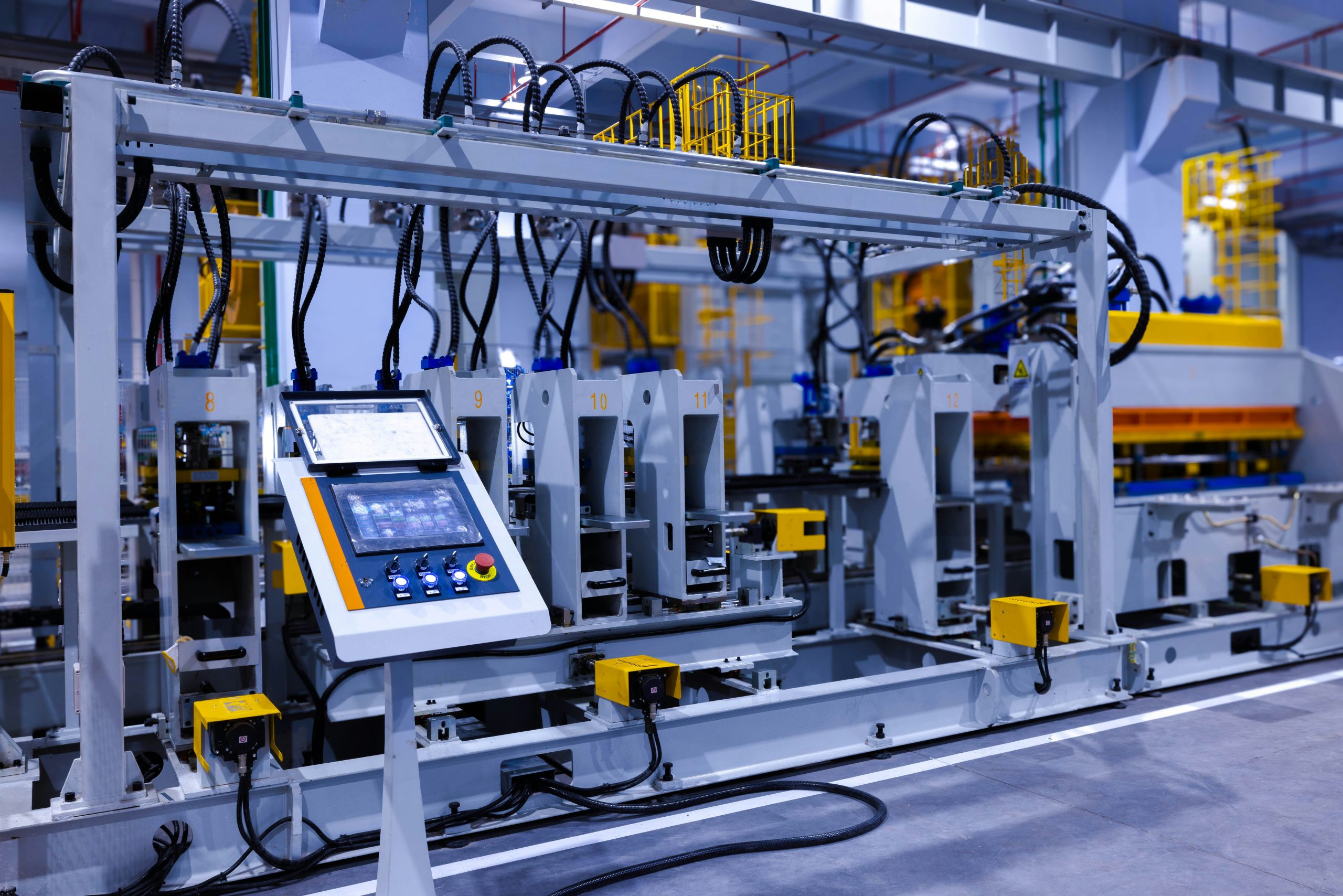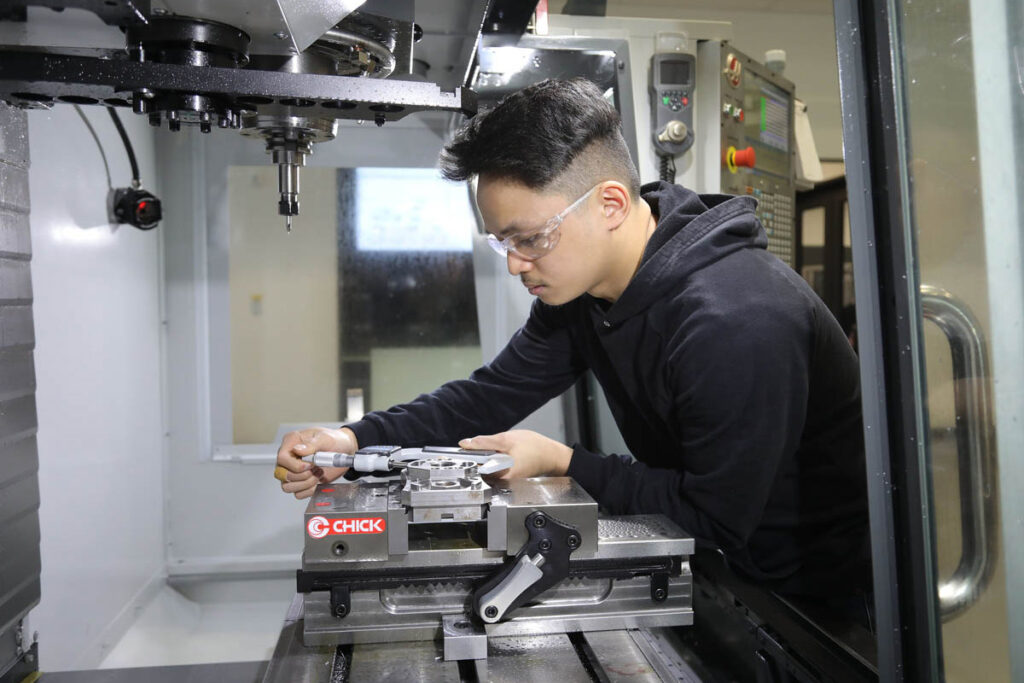What makes a tool and die maker different from CNC machinists?
Wiki Article
Elevate Your Manufacturing Quality With Specialist CNC Machining Providers in Milling and Transforming
CNC machining services in milling and transforming deal significant advantages for producing procedures. These procedures ensure precision and performance, essential for creating high-quality elements. With innovative innovation and skilled machinists, services can attain complex designs and premium surfaces. However, comprehending the subtleties of these solutions is necessary for maximizing their benefits. What elements should business think about when picking the best CNC machining companion?Comprehending CNC Machining and Its Advantages
Although lots of manufacturing processes exist, CNC machining stands out because of its accuracy and efficiency - jig and fixture tooling. This sophisticated manufacturing strategy uses computer-controlled makers to create complex components with very little human intervention. By automating the machining process, it considerably minimizes the probability of human error, ensuring consistent quality throughout manufacturing runsCNC machining uses many advantages that interest numerous markets. To begin with, it accommodates intricate styles that traditional approaches may struggle to attain. The speed of manufacturing is enhanced, allowing for quicker turn-around times and increased output. In addition, CNC machining is versatile, suitable for a vast array of products, consisting of metals, compounds, and plastics.
The procedure permits for simple changes, making it possible for quick prototyping and personalization without considerable retooling. Because of this, organizations can respond swiftly to market needs, making CNC machining an essential element of modern-day manufacturing approaches.

The Relevance of Precision in Milling Processes
Precision is crucial in milling processes, as it directly influences the precision of the end product. The selection of products also plays a substantial role, impacting just how well the machining procedure meets specified resistance standards. Recognizing these components is vital for attaining optimal cause CNC machining.Role of Accuracy
Accomplishing high levels of accuracy is important in milling processes, as even the tiniest inconsistency can lead to significant mistakes in the end product. Precision in CNC machining straight influences the efficiency, capability, and long life of the manufactured components. Precise crushing guarantees that dimensions and resistances are fulfilled, which is important for parts that need to fit with each other seamlessly in setting up or operate under certain conditions. In addition, the role of precision reaches decreasing waste and rework, thereby improving overall manufacturing efficiency. Advanced CNC equipments outfitted with sophisticated software application and tooling add to attaining the needed precision. By focusing on accuracy in milling, suppliers can guarantee top notch outputs that fulfill stringent industry requirements and client assumptions.
Material Selection Effect
Product choice plays an essential function in the milling process, influencing both the high quality of the end product and the effectiveness of manufacturing. Various products display special residential properties such as firmness, tensile toughness, and machinability, which directly impact the milling technique utilized. More challenging materials might require specific devices and slower feed rates to prevent device wear and keep accuracy. Conversely, softer materials can be milled at higher rates however may lack durability. Furthermore, the choice of product can impact surface area finish and dimensional accuracy, demanding mindful consideration by producers. Inevitably, picking the suitable material not only enhances product performance however additionally enhances the milling procedure, minimizing waste and boosting general productivity.Tolerance Requirements Significance
While the option of products is essential, adherence to tolerance requirements is just as crucial in CNC machining processes. Tolerance requirements determine the acceptable restrictions of variant in measurements, ensuring parts fit and function appropriately. In milling and transforming operations, exact resistances boost product quality, lower waste, and minimize rework. When tolerances are accurately preserved, makers can accomplish constant results, which is important for industries such as aerospace, automotive, and medical gadgets, where accuracy is vital. Discrepancies from developed requirements can result in setting up concerns, compromised performance, and enhanced prices. Understanding and carrying out correct resistance criteria is basic for any CNC machining service looking for to keep high manufacturing high quality and fulfill customer specifications successfully.Enhancing Efficiency With Advanced CNC Transforming
Advanced CNC turning strategies substantially boost efficiency in element production by making certain high precision in production. This raised precision not just enhances the general high quality of the parts generated but additionally adds to decreased production time. Consequently, suppliers can attain better output while preserving rigid top quality standards.Accuracy in Component Production
CNC transforming modern technology has transformed accuracy in element development, making it possible for manufacturers to attain exceptional accuracy and effectiveness. Using computer-controlled turrets, this sophisticated process carefully shapes products right into intricate designs, making sure limited tolerances that satisfy requiring specs. The automation inherent in CNC transforming reduces human mistake, leading to regularly top quality elements tailored to certain requirements. Furthermore, the ability to rapidly customize digital layouts enables fast iterations, improving the modification of components without giving up precision. Consequently, markets ranging from aerospace to auto advantage substantially from these improvements, as they can produce complicated geometries effortlessly. Inevitably, CNC turning stands as a foundation of modern production, driving precision and reliability in element development.Reduced Production Time

Trick Technologies in CNC Machining
Various vital modern technologies drive the effectiveness and accuracy of CNC machining, allowing producers to produce intricate get rid of high accuracy. Central to these innovations are Computer Assisted Style (CAD) and Computer System Assisted Production (WEBCAM) software application, which enhance the design-to-production procedure. CAD allows for detailed designs to be produced and adjusted digitally, while webcam translates these layouts right into machine instructions.Even more boosting precision are multi-axis machining centers, which enable cutting devices to move along multiple axes at the same time, lowering the demand for multiple setups - tool and die maker. Furthermore, innovations in tooling materials and finishes have actually enhanced sturdiness and performance, permitting much better surface finishes and prolonged device life
Automation innovations, including robotics and intelligent software application, facilitate real-time surveillance and modifications throughout manufacturing, guaranteeing consistency and high cnc milling services near me quality. Jointly, these modern technologies not just improve manufacturing abilities yet additionally add to the general reliability of CNC machining solutions.
The Role of Experienced Machinists in High Quality Production
Knowledgeable machinists play an essential duty in guaranteeing the top quality and accuracy of CNC machining manufacturing. Their competence directly affects the outcome of making processes, as they analyze technological illustrations, established up equipments, and pick appropriate tools for each and every project. By possessing a deep understanding of machining concepts, they can make real-time modifications to maximize efficiency and preserve limited resistances.Moreover, skilled machinists employ their analytical capacities to determine and rectify issues during production, making certain and protecting against problems that the end products satisfy rigid top quality standards. Their familiarity with different materials and machining strategies enables them to adjust to diverse job needs, improving overall effectiveness
Furthermore, these specialists commonly collaborate with developers and engineers, supplying valuable understandings that add to the continual renovation of manufacturing techniques. Ultimately, the value of proficient machinists in CNC machining can not be overemphasized, as they form the backbone of top quality manufacturing procedures.
Lowering Waste and Optimizing Resources
Reliable CNC machining not just depends on the competence of proficient machinists yet likewise highlights the importance of reducing waste and maximizing resources throughout the production process. By employing sophisticated modern technologies and accurate shows, suppliers can reduce product waste, making sure that every item of raw product is utilized efficiently.Including methods such as nesting, where parts are arranged to make the most of product usage, can especially decrease scrap manufacturing. Additionally, real-time surveillance of device efficiency enables prompt modifications, avoiding overproduction and resource exhaustion.
Furthermore, carrying out lasting methods, such as recycling metal shavings and using environment-friendly materials, adds to both expense financial savings and ecological obligation.
With these procedures, CNC machining services can enhance efficiency while keeping premium standards, eventually resulting in a more sustainable and successful operation. By prioritizing resource optimization, organizations can attain better effectiveness and a minimized ecological footprint in their production procedures.
Selecting the Right CNC Machining Solution for Your Demands
Just how does one identify the very best CNC machining service for details project demands? Picking the suitable CNC machining service includes a number of critical factors to consider. Initially, job requirements, consisting of material resistances, dimensions, and kinds, should be plainly defined. This ensures that the selected service can fulfill the technological needs of the job.Second, examining the provider's expertise and experience in the appropriate sector can offer insights into their capabilities. Examining past projects and client testimonies can even more educate the decision.
Third, examining the offered modern technology and equipment is crucial, as sophisticated devices commonly brings about higher accuracy and efficiency.
Price and turn-around time must be thought about to assure the service lines up with budgetary restraints and deadlines. By thoroughly assessing these aspects, businesses can identify the CNC machining solution that best fits their one-of-a-kind production needs.
Often Asked Inquiries
What Materials Can Be Used in CNC Machining?
CNC machining can use a variety of materials consisting of steels like light weight aluminum, titanium, and steel, in addition to plastics such as acrylic and nylon, and compounds, offering flexibility for various manufacturing applications and sectors.For how long Does a Typical CNC Machining Task Take?
A typical CNC machining task can take anywhere from a few days to numerous weeks, relying on aspects such as complexity, material type, style specs, and production volume. Timelines differ based on project requirements and urgency.Are CNC Machining Solutions Environmentally Friendly?
CNC machining services can be eco-friendly, especially when making use of lasting products and reliable processes. Waste reduction and energy-efficient machinery add to a reduced environmental influence, making these solutions a practical choice for eco-conscious production.What Industries Frequently Use CNC Machining Solutions?
CNC machining services are typically used in various industries, consisting of automotive, aerospace, electronics, medical devices, and production. These markets rely upon accuracy machining for parts that call for high precision, efficiency, and repeatability in manufacturing procedures.How Can I Prepare My Styles for CNC Machining?
To prepare designs for CNC machining, one need to guarantee appropriate data layouts, optimize measurements for resistance, incorporate required machining functions, and take into consideration material properties. Additionally, giving comprehensive paperwork can enhance the production process's efficiency and accuracy.While the selection of products is necessary, adherence to tolerance requirements is equally vital in CNC machining procedures. Experienced machinists play a necessary function in making certain the quality and accuracy of CNC machining production. A common CNC machining job can take anywhere from a couple of days to a number of weeks, depending on elements such as intricacy, material type, style specifications, and manufacturing quantity. CNC machining solutions can be eco friendly, specifically when utilizing sustainable materials and reliable processes. To prepare styles for CNC machining, one should ensure proper data formats, enhance measurements for resistance, include essential machining functions, and take into consideration material buildings.
Report this wiki page